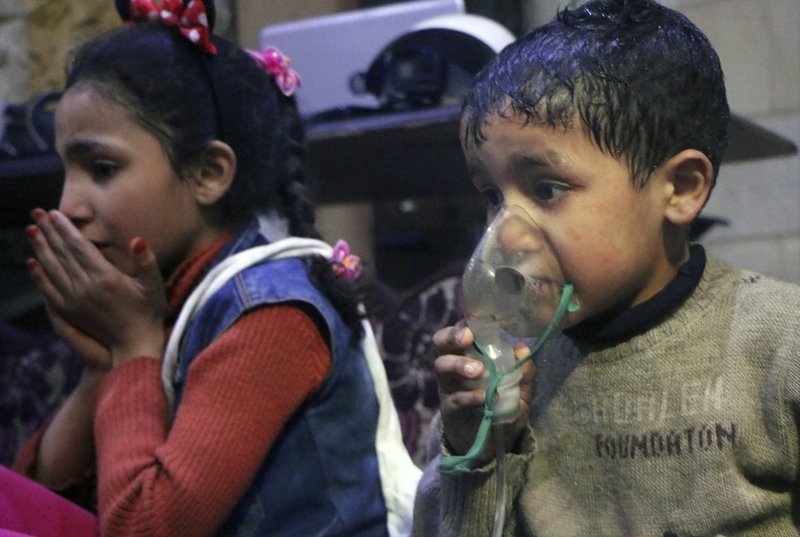Syria, a regime responsible for repeated gas attacks on its own citizens, is now leading the United Nations Conference on Disarmament.

In protest, Canada is reading out the testimonies of survivors of the regime’s deadly use of chemical weapons.
READ MORE: Timeline of the Syrian civil war and the United States’ response
Beginning on May 28, Syria took control of the presidency of the conference for the next month and following praise from China, North Korea, Russia, Iran, Iraq and Pakistan, the Syrian representatives quickly warned member states not to refer to the nation’s authorities as a “regime.”
But almost immediately, the protests began.
WATCH BELOW: U.S. walks out of UN disarmament conference in protest of Syria

The United States walked out of the conference, while the U.K., Japan, Australia, New Zealand and countries of the European Union issued condemnations on the floor of the conference.
While Canada did not walk out in protest, a spokesperson for Foreign Affairs Minister Chrystia Freeland said Canadian representatives are taking other measures to make sure the regime’s victims are remembered.
READ MORE: ‘It’s about time’: Syrian in Vancouver applauds U.S. missile strikes
“We deplore the fact that Syria is currently holding the rotating presidency of the Conference on Disarmament. The use of chemical weapons by the Assad regime is completely barbaric and morally reprehensible,” wrote Adam Austen, spokesperson for the minister, in an email to Global News.
“That is why we have downgraded our participation in the conference. At every possible opportunity throughout the month of the Syrian presidency, we intend to read out the testimony of survivors of these tragic attacks so the world can hear first-hand of the atrocities being committed there.”
As well, Austen said Canada jointly submitted a statement with Australia and Turkey protesting the Syrian presidency of the conference.
The Canadian permanent representative to the conference, Rosemary McCarney, also will not take part in any plenary meetings of the conference while Syria holds the presidency.
In a speech given on May 29, a member of the Canadian delegation rose to explain why she would not attend any such meetings.
WATCH BELOW: Syrian man who lost over 20 members of his family in alleged gas attack sobs at their grave site

“To be clear: the Assad regime has used chemical weapons against its own people; Syria has no legitimacy to sit in the chair and preside over this forum,” the statement read.
“Syria has turned its back on the very principles on which this forum stands. Put simply, Syria is manifestly unsuited to preside over the conference. Since Syria’s decision to assume the rotating function of CD president is unacceptable to Canada, our permanent representative will not participate in any plenary meetings during this presidency.”
WATCH BELOW: Dozens suffocate after suspected chlorine gas attack in Syria

Among the stories shared by the delegation was one of a survivor of the April 2017 sarin attack on the Syrian town of Khan Sheikhoun.
Fatima Abdel-Latif al-Youssef has shared her story with Human Rights Watch and it was her testimony that the Canadian delegation read out.
READ MORE: What’s going on in Syria? Latest chemical attack rakes up already heated conflict
She recounted living just a few metres away from where the gas went off and described trying to help pull her aunt into the safety of a nearby apartment.
“I left her on the ground next to the door to go upstairs and call my uncle to help me,” she said in the testimony read out by the Canadian delegation.
The United Nations Conference on Disarmament was behind the Convention on the Prohibition of the Development, Production, Stockpiling and Use of Chemical Weapons, created in 1993.
It is that ban on chemical weapons use that Syria has repeatedly been found to have violated through the use of gas on its citizens.
Syrian presidency of the conference ends on June 25.




Comments